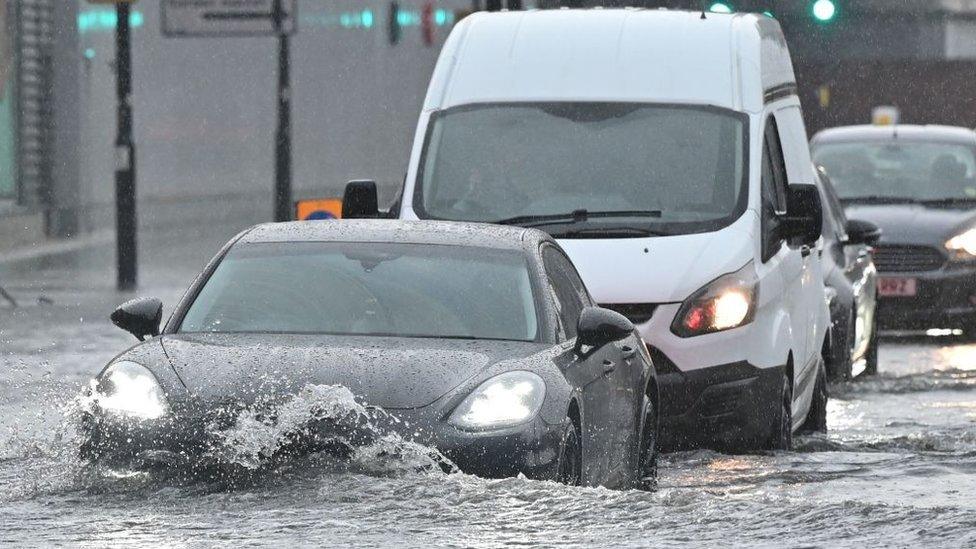Climate change: Londoners urged to prepare for more flooding
- Published
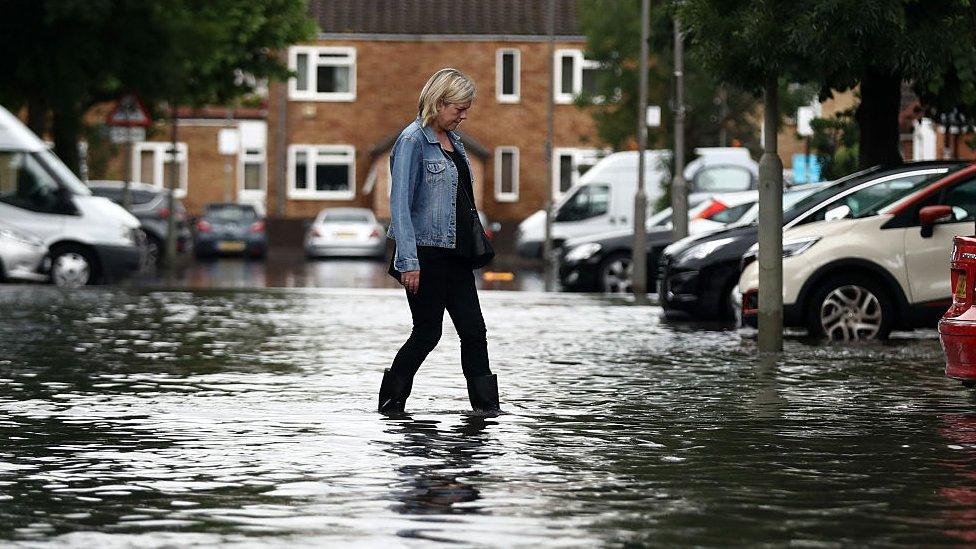
The Met Office and Environment Agency are warning the risk of flooding is increasing
The Met Office is warning Londoners to prepare for the risk of flooding as winter approaches, following recent extreme weather.
People are encouraged to plan ahead by checking their flood risk online and signing up for flood warnings.
It follows a heatwave and flooding in the capital this summer, with temperatures above 40C recorded.
More than 1,500 homes and two hospitals were flooded after heavy rainfall across the capital in July.
The London Climate Change partnership says London is especially prone to surface water and sewage flooding, external following heavy rainfall, due to the large number of "impermeable surfaces" like roads and pavements, and Victorian drainage systems that aren't equipped to cope with increased water flows.
During the extreme weather, sewage came up through manhole covers and toilets in people's homes and flooded streets in Woodford, Walthamstow and Battersea.
Whipps Cross and Newham hospitals asked patients to stay away after their emergency departments were hit by flooding.
'Some lost everything'
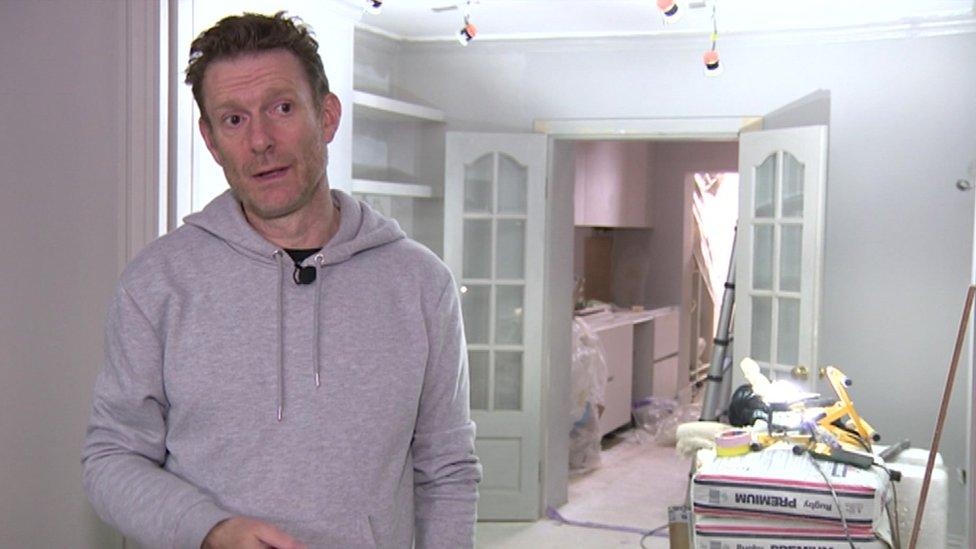
Danny Briottet says it's taken more than a year to repair damage caused when his home in Kilburn flooded
Flash-flooding in London was also an issue in 2021.
Danny Briottet's home in Kilburn, north-west London, was flooded during heavy rain in July 2021, and is still being renovated by builders due to the extent of the damage.
He said floodwater came up through a manhole cover inside his home and he couldn't reach emergency services because they were dealing with major incidents across London at the time.
"We had water pouring in from the front and back, water coming up from the manhole, and it reached well over my knee and stayed there all afternoon," he said.
"Our six-year-old was quite scared at the time; everything was black and ruined."
Mr Briottet and his family had to stay in temporary accommodation for months while his home dried out and insurers processed their claim and arranged repairs.
All the wooden floors, kitchen, skirting boards and wiring have had to be replaced.
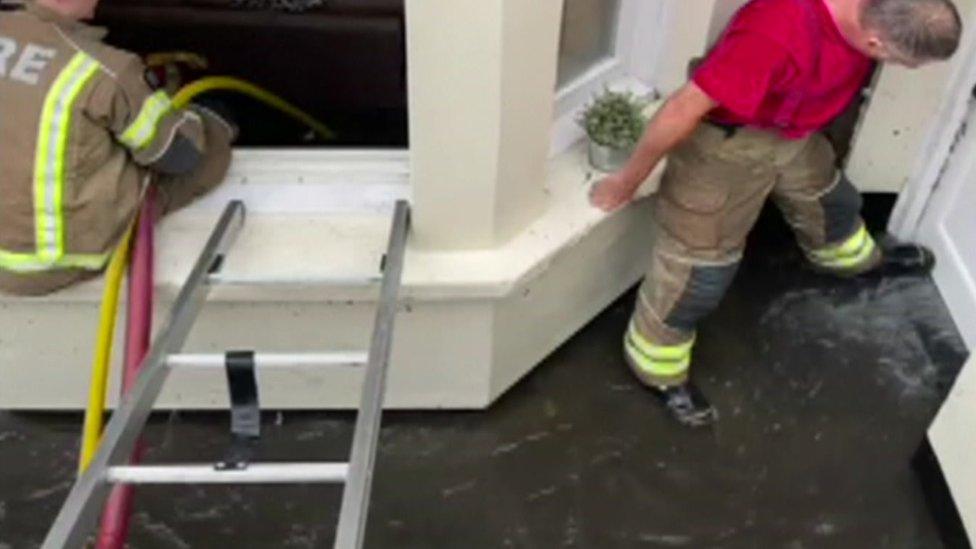
"Some of the older people who just had basement flats and lost everything - family heirlooms, pictures, medals going back - it was terrifying," Mr Briottet said
Mr Briottet said they were lucky to get most of their valuables upstairs, unlike neighbours who didn't have insurance or weren't able to move their things quickly.
"It was hard for some of the older people who just had basement flats and lost everything - family heirlooms, pictures, medals going back. It was terrifying for them," Mr Briottet said.
He added there was little support for those affected and to his knowledge there haven't been any extra measures implemented in the neighbourhood since the flooding.
"Whatever happened on that day, if we did have that kind of rain again - it'll happen again," he said.
Mr Briottet said the causes of the flash-floods of July 2021 were still under investigation - local water management issues, external have been raised as a possible factor.
'Don't ignore danger'
Now the Environment Agency is launching Flood Action Week, external to encourage those in areas at risk of flooding to protect their homes and possessions, especially as the agency's analysis found nearly two-thirds of households at risk of flooding don't believe it will happen to them.
Caroline Douglass, executive director of flooding at the Environment Agency, said: "Climate change is happening now. We're seeing more extreme weather - in this year alone with three named storms in a week, record-breaking temperatures and drought declared across large parts of the country.
"Our recent investment programme has better protected 314,000 homes from flooding and we're investing millions into keeping communities safe, but we can't stop all flooding.
"The message is clear - households risk ignoring the danger of flooding at their own peril."
Environment Minister Rebecca Pow said: "We are committed to pressing ahead with our record £5.2bn investment in flood and coastal defences between 2021 and 2027 to ensure more communities are even better prepared for future flooding events."

Follow BBC London on Facebook, external, Twitter , externaland Instagram, external. Send your story ideas to hellobbclondon@bbc.co.uk, external
Related topics
- Published17 October 2022
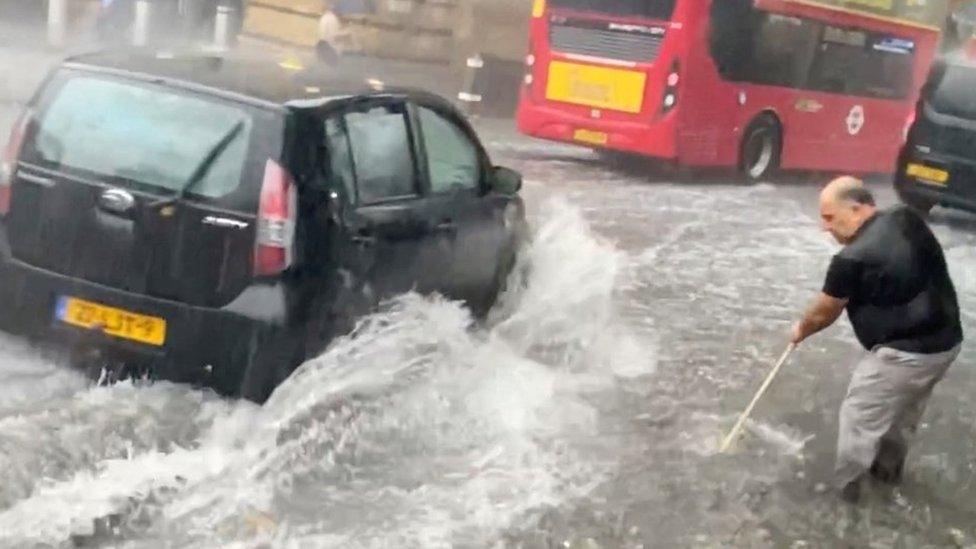
- Published26 July 2022
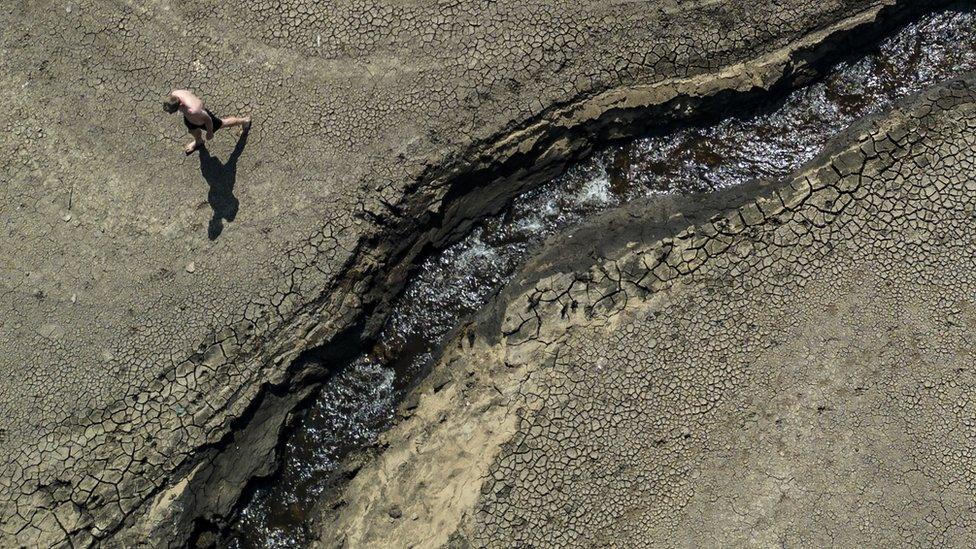
- Published26 July 2021
